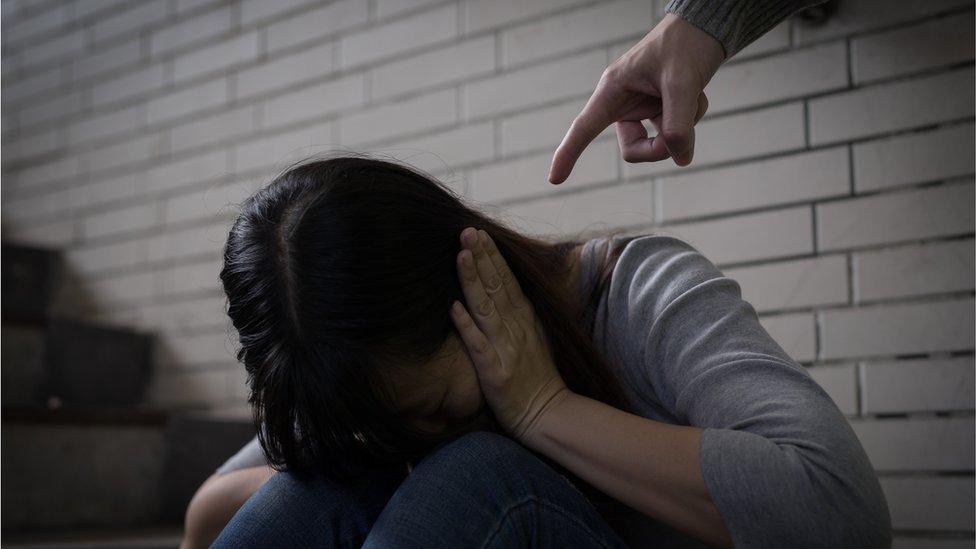Domestic abuse: Six women murdered after reporting partner
- Published
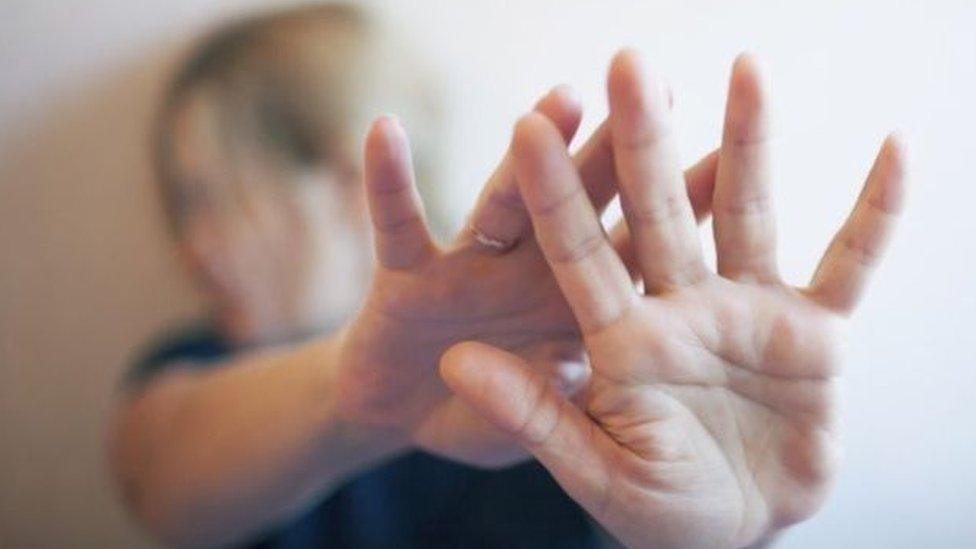
Six women in Northern Ireland have been murdered since 2015 despite previously reporting their violent partners to the police.
One woman contacted the police eight times before she was killed, figures obtained by BBC News NI showed.
The family of one of the women said tougher legislation is needed to protect women.
A new bill to strengthen NI's domestic abuse legislation is currently being considered by the assembly.
Police said they would welcome more protection in law for victims.
Connie Leonard was murdered at her home in in Maguiresbridge, County Fermanagh, in 2017.
Her brother Fergal said police needed to be given stronger powers to tackle domestic violence.
He told the BBC: "There are a number of matters I feel that could have been acted on and may have saved Connie's life."
"The last person in the world that I thought something would have happened to is Connie."
Ms Leonard and her son Conor, who has Down's syndrome, were attacked by 55-year-old Peadar Phair, a former partner of Ms Leonard.
She had reported Phair three times before she was murdered and she had taken out a non-molestation order against him.
Phair later took his own life.
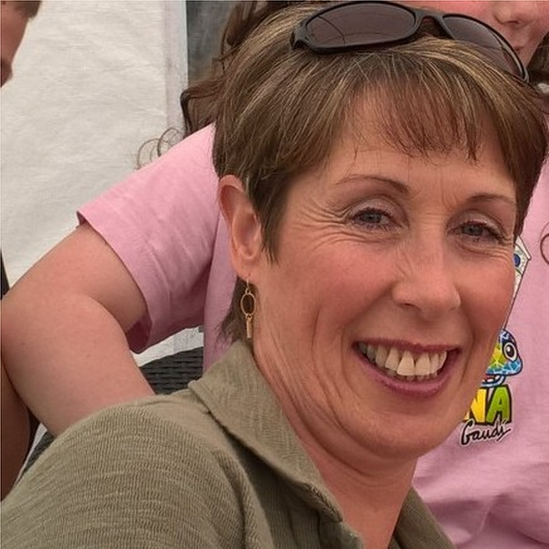
Connie Leonard was stabbed to death in front of her son
Police, Mr Leonard said, must "know what their powers are and that they use these powers effectively".
There must be "proper monitoring and following up" and officers must know "what actions they are supposed to take".
The Police Service of Northern Ireland (PSNI), which released the figures to the BBC following a freedom of information request, said it would welcome more protection in law for victims of domestic abuse.
Det Ch Insp Lindsay Fisher said: "In terms of legislation, police are very much bound by and uphold the law.
"Therefore we are always acting within the law in terms of our response to domestic abuse matters or any other crime.
"Police would welcome any further legislation that would support victims of domestic abuse and would seek to bring offenders to justice."
Det Ch Insp Fisher urged anyone suffering from abuse to "reach out to police or to a family member".
She added: "The PSNI is here to help victims of domestic abuse and we do have enhanced support services in place."
Justice Minister Naomi Long said the process of strengthening NI's laws is under way.
She said she was considering the introduction of Domestic Violence Protection Orders, which allow police in other parts of the UK to intervene where they believe a person to be at risk, but do not have enough evidence to bring a criminal charge.
She said: "I have signed off last night on a consultation process on domestic abuse protection notices and orders. That will happen over the next number of weeks."
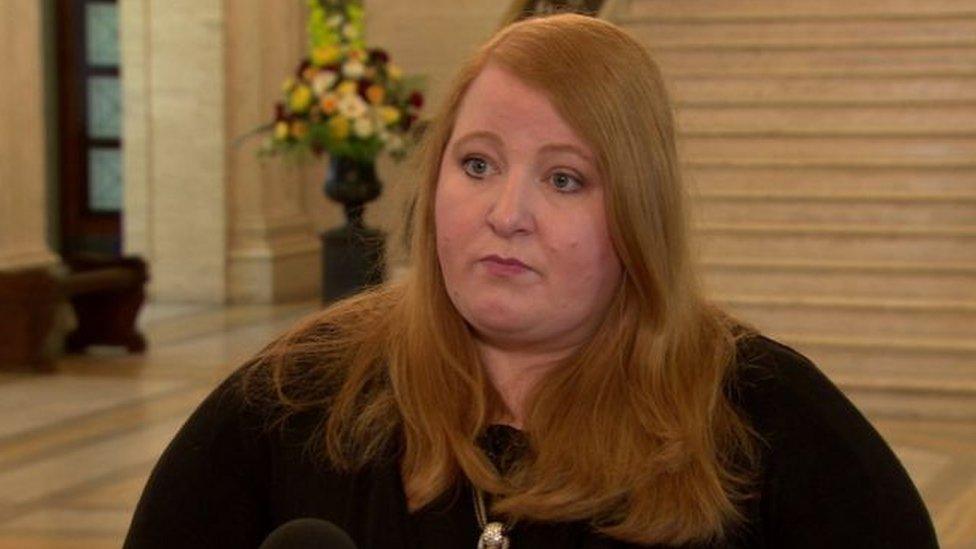
Naomi Long said the process of strengthening NI's laws is under way
Separately, a bill to strengthen domestic abuse legislation returns to Stormont in December.
It will mean domestic abuse offences in Northern Ireland will no longer be limited to physically violent behaviour.
It will make a form of bullying, known as coercive control, an offence in Northern Ireland for the first time.
Convictions for the most serious domestic abuse offences will carry a penalty of up to 14 years in jail.
'Not good enough'
Sonya McMullan from Woman's Aid Northern Ireland said police need "more robust powers" in relation to domestic abuse.
He said: "Legislation which is in other parts of the UK is not here in Northern Ireland.
"That is just not good enough in regard to protection orders and emergency orders that would give the police more powers to remove the perpetrator and to get an order themselves.
"We need emergency barring orders and powers that takes the onus off the victim and where the police get that order with or without the victim's consent".
If you've been affected by this story, you can find more information and support on the BBC Action Line website: http://bbc.co.uk/actionline, external
- Published10 November 2020
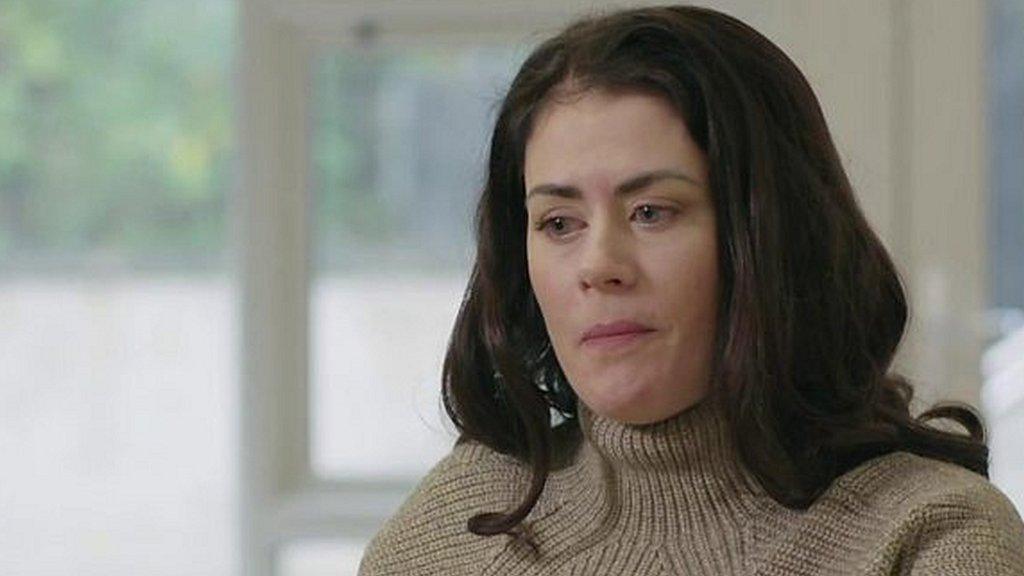
- Published18 November 2020
